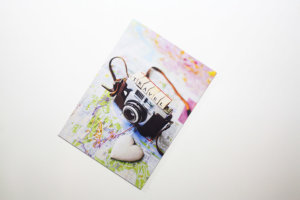Gratitude for Jeddah
 It’s tricky to focus on a big topic like gratitude. There’s the matter of scale. I am grateful for many things, that my loved ones have escaped the coronavirus and that an effective vaccine may be available soon. On a different scale, two things have eased my mental health during this pandemic slog. They are both places: Vermont and the Kingdom of Saudi Arabia.
It’s tricky to focus on a big topic like gratitude. There’s the matter of scale. I am grateful for many things, that my loved ones have escaped the coronavirus and that an effective vaccine may be available soon. On a different scale, two things have eased my mental health during this pandemic slog. They are both places: Vermont and the Kingdom of Saudi Arabia.
Since the lockdown began in mid-March, I have treasured Vermont’s outdoor playgrounds. Successively I have cross-country skied; snowshoed; micro spiked to the summit of (closed) alpine ski terrain; hiked to these same summits amidst spring wildflowers; walked on quiet dirt roads and at Mt. Philo, Charlotte Park and Wildlife Refuge, Shelburne Farms, Raven Ridge, History Hike at Little River State Park, and Niquette Bay State Park. The list goes on.
This spring we visited our vernal pool at Raven Ridge, counting frog and salamander eggs and tadpoles. With little snowmelt to fill the pool, water evaporated a month earlier than in 2019; this year’s crop of tadpoles and baby salamanders did not survive to become frogs or adult salamanders. I listened to birdsong and learned some new species. I loved watching the family of barred owls on Mt. Philo. When the weather and waters warmed, I kayaked on bodies of water large and small, including tributaries of Lake Champlain: LaPlatte River, Lewis Creek, Otter Creek, and Lamoille River. I ogled families of loons and ducks on Green River Reservoir, Lake Iroquois, and Lake Champlain. Despite our dry summer, brilliant fall foliage provided more excuses to walk, hike, or bike. Soon snow will cover our mountains and the cycle will begin anew. I am so grateful to live in Vermont.
Several decades ago our family lived in the Kingdom of Saudi Arabia. We had reasons for this escapade: a desire for adventure and exotic travel, leaving behind a high-pressure job, and salting away funds for our eventual home. Life was not easy in Saudi Arabia, especially for women. I could not drive or work legally. Out of respect for local customs, I sported voluminous dresses or skirts topped with oversized shirts, even on the hottest days. Our housing compound was bleak: metal houses resembled large shipping containers with holes for windows, doors, and air conditioning units; seven-foot cement walls surrounded each house, enclosing a barren patch of sandy soil. The scorching sun faded everything to beige with a frosting of desert sand.
Beyond our fences and walls lay the port city of Jeddah with no public parks, no museums, no theaters, no sports arenas, no churches. Few restaurants allowed women. On weekend evenings Saudi families spread picnics on grassy traffic circles in the middle of intersections or along the beaches of the Red Sea. Most of the year it was hot. Very hot.
We did not have a telephone, email and the internet lay in the distant future, and mail, books, and media were all censored. Each time I flew to Jeddah I imagined the gates locking behind me. In order to leave the Kingdom I needed an exit visa, approved by my husband and his employer, the King Fahad Military Hospital. On bad days I felt like a prisoner.
And yet time passed, sometimes rather quickly. What kept me going? How did I muscle through nearly three years in Saudi Arabia, where scorching days with gales of gritty wind were more confining than our cold November darkness?
I wrote letters, the old-fashioned kind. When a hand-written letter from a long-lost friend arrives, folks pay attention. And respond. I cooked a lot, experimenting with local produce and spices from the souk. I listened to bootlegged cassettes and sang along. Sometimes I rode the public bus to the downtown souk, bouncing on the searing vinyl seats in the women’s section at the back of the bus. I read, savoring almost anything I could lay my hands on. Mostly, I put in my time and looked ahead to our next adventure. I tried to focus beyond the monotony of my days toward pleasures that awaited: trekking in Nepal, wildlife safari in Kenya, fine dining in France, or exploring Petra, the Pyramids of Giza, and Yemen’s ancient cities.
As I wrestle with the near certainty that we will not see our children or theirs for many months, I try to put on my Jeddah head. If we can stay healthy we will eventually get a vaccine. Some day we will see our family again. Fortunately, I love our home and where we live–this is a far cry from Jeddah. Of course I can do this!
Thank you, Jeddah, for the gift of perspective. As we move through this national nightmare, I am grateful.

